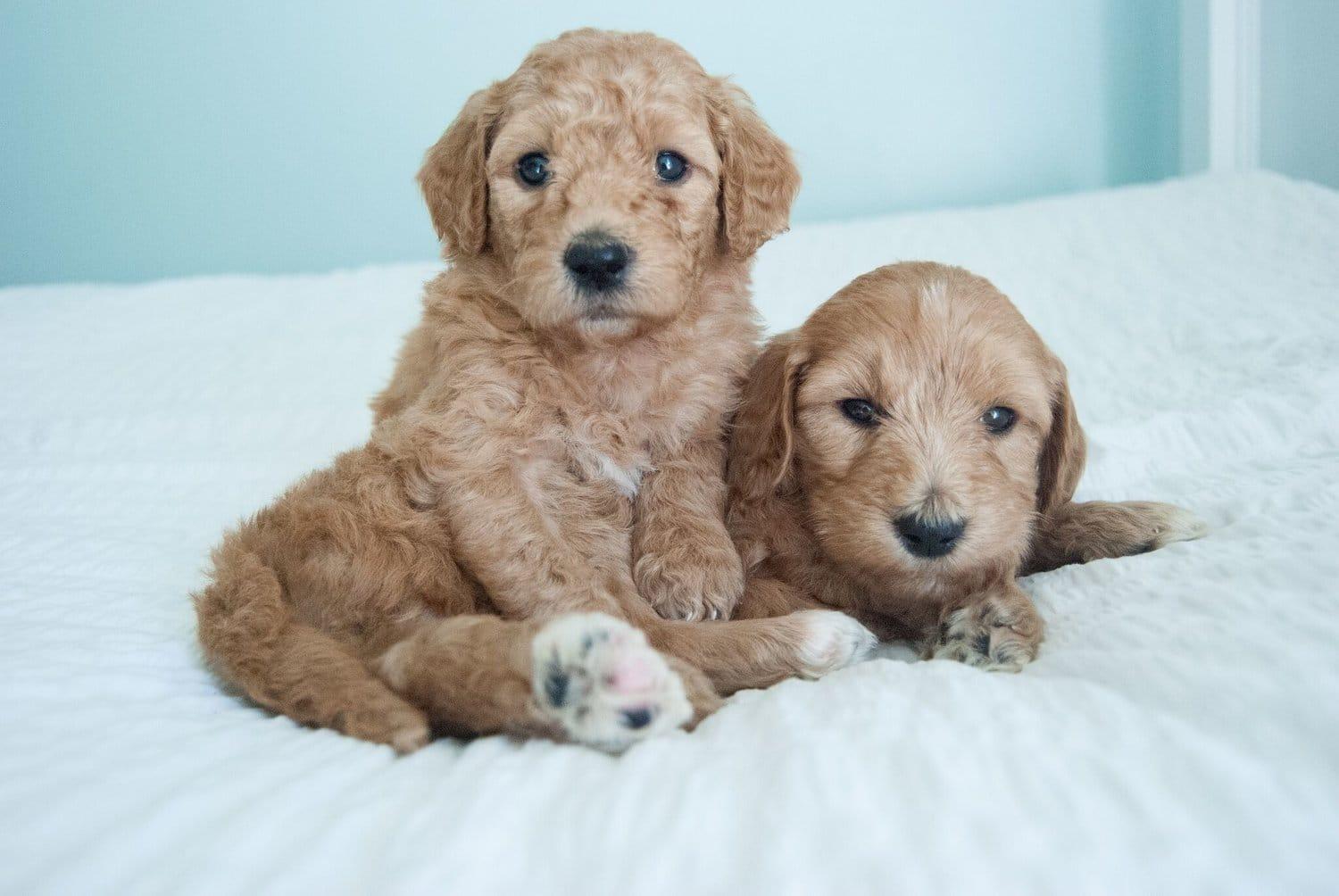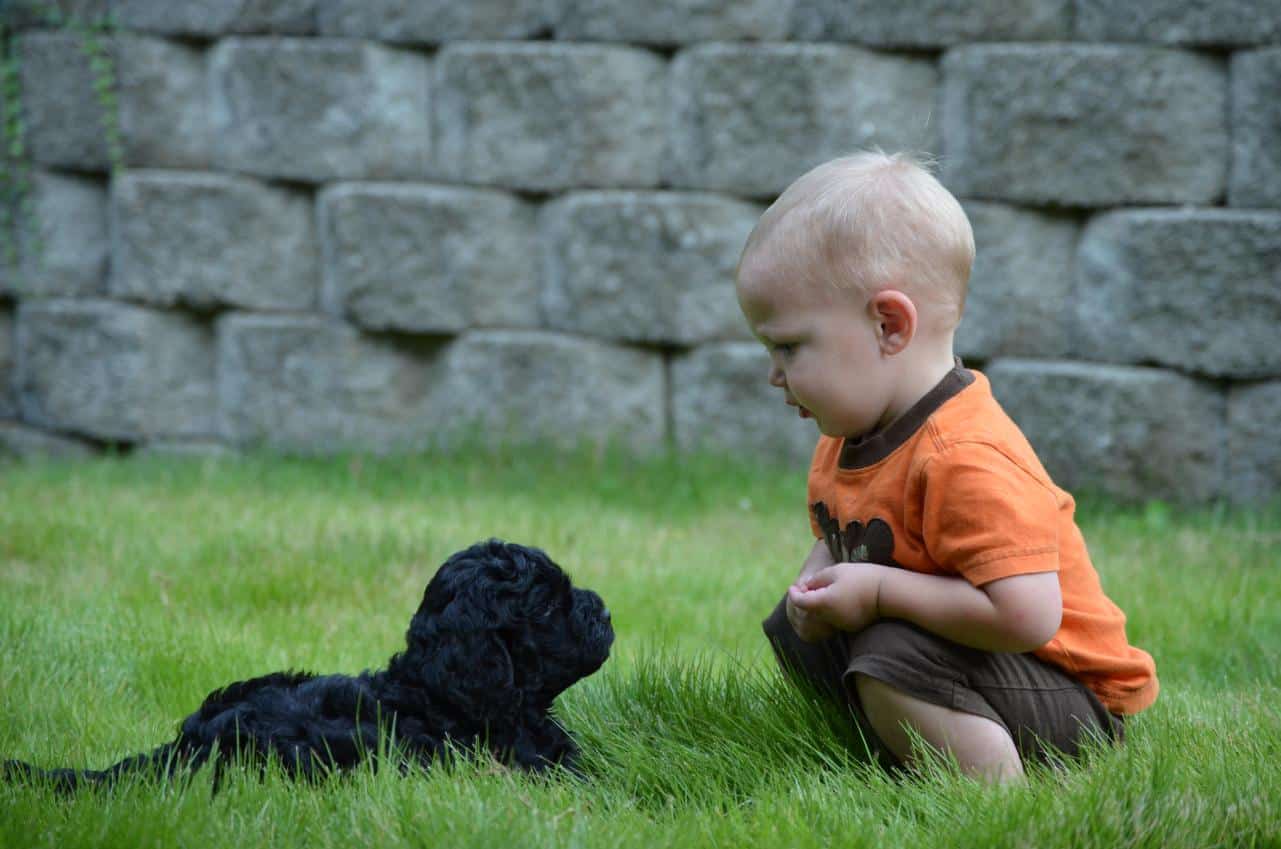Choosing the right Doodle puppy can feel like solving a puzzle with missing pieces. Maybe you want a smart, friendly dog, but you're worried about shedding or health issues. Or maybe you’ve heard about Goldendoodles and Labradoodles, but don’t know what makes them different from other dogs in your neighborhood.
Here’s something cool: each Doodle is part Poodle mixed with another breed like a Golden Retriever or Labrador. This mix leads to puppies that often bring together the best parts of both breeds.
In this blog, I’ll break down how genetics shape these popular pups’ looks, smarts, coats, and health. Stick around; you might find out why so many people say the best Doodle puppies have it all!
The Basics of Doodle Genetics

Doodle genetics can seem tricky at first. But it's really about mixing breeds to create great traits.
● Hybrid vigor and its benefits
Mixing a Poodle with another dog breed creates what breeders call hybrid vigor. First-generation doodles, or F1s, get traits from both parents. This mix often brings out stronger health and energy in the puppies.
For example, Goldendoodles may get the Poodle’s smarts and a Golden Retriever’s friendly nature all in one pup. F1B doodles come from breeding an F1 back to a purebred Poodle, which can boost those sought-after Poodle perks like low-shedding coats—a big plus for families who want less mess during in-home puppy training.
Hybrid vigor means crossing two breeds gives you pups that are healthier than either parent.
Most doodle dogs avoid many of the serious genetic issues seen in purebreds because their genes have more variety. One Labradoodle might outlive its Labrador parent or avoid common poodle allergies altogether.
Genetics really matter here—breeders use family history to find pairs that match well together for healthy puppies with great personality and trainability. This helps make Doodles shine at home as pets, helpers, or even therapy animals.
● Coat and color genetics
Doodle coat types depend on genes from both parents. The furnishing gene, for example, shapes their signature fluffy look. In Goldendoodles, different generations like F1 and F1B can show big changes in hair type.
An F1 is a first-generation cross between a Poodle and another breed, say Golden Retriever. These pups often have coats that range from wavy to straight or curly—like opening a box of chocolates, you never know what you’ll get! Breeders favor F1B Doodles by crossing an F1 back with a purebred Poodle.
This trick usually brings out low-shedding curls that many families want.
Color genes add even more surprises to the mix. You might see shades from creamy golds to rich reds in Goldendoodles or chocolates in Labradoodles. Genes passed down decide every stripe and spot—even puppies from the same litter can all look different! Miniature, Standard, and Toy Poodles used as parent dogs bring variety too, so colors and patterns pop up everywhere you look among doodle breeds.
Coat genetics do not just affect looks; they also play into allergies since more curl often means less shedding dander around your home.
Why Doodles Excel in Temperament

Doodles are known for their friendly nature. They are smart and easy to train, which makes them great pets. Plus, they love to cuddle and adapt well to different homes. This mix of traits creates a loving companion who brings joy to everyone around them.
● Intelligence and trainability
Genes shape how smart and easy to train a Goldendoodle or Labradoodle can be. Breeders look at the mother and father’s traits, focusing on top qualities from both breeds. F1 Doodles, born from purebred Poodles and another breed like Golden Retriever or Labrador, show lots of variety in brains and how fast they pick things up.
With F1B generations, breeders often backcross with a purebred Poodle to highlight that eager-to-learn side that Poodles are famous for.
Most doodle mixes inherit this willingness to learn, mixed with their other parent’s attitude. Some Goldendoodles even surprise families by learning commands after just one or two tries! However, data shows that Goldendoodles sometimes act out more than their parent breeds do; Labradoodles stay closer in behavior to their roots.
Genetics make every puppy different but set many up as quick learners ready for life at home or work. Now let’s peek into why doodles also stand out with affection and adaptability.
● Affection and adaptability
Doodles shine in their affection and adaptability. They are friendly and love to be around people. This makes them great family pets. Doodles often bond closely with their owners, always ready for a snuggle or playtime.
These dogs adapt well to different environments too. Whether you live in a small apartment or a large house, they fit right in. Their eagerness to learn helps them adjust quickly to new situations.
In fact, doodles inherit the Poodle’s desire for companionship along with traits from their other parent breed. All of this makes them easy-going and charming companions.
A doodle is like a warm hug on a rainy day.
Health Advantages of Doodles
Doodles enjoy some great health perks. They tend to have a lower chance of getting certain genetic illnesses.
● Lower risk of genetic disorders
Genetic disorders can be a big worry with some dog breeds. Doodles tend to have a lower risk of these issues. This is due to hybrid vigor, which comes from mixing different breeds.
For example, F1 Doodles inherit traits from both the Poodle and their other parent breed. This mix often leads to better health overall.
Breeders focus on genetic traits when creating Doodles. They pair Poodles with other breeds for healthier pups. F1B Doodles are popular because they emphasize Poodle traits even more through backcrossing with purebred Poodles.
This careful selection helps reduce chances of inherited health problems in these lovable dogs. Next up is how great the temperament of Doodles is!
● Longevity and vitality
Doodles often enjoy longer lives compared to many purebred dogs. This comes from their varied genetics. Mixing a Poodle with another breed helps lower the risk of genetic disorders.
Doodles benefit from hybrid vigor, which adds strength and resilience.
Healthier genes lead to bright coats and lively temperaments too. Many Doodles display vitality well into their senior years. They tend to stay active and engaged, bringing joy for a long time.
More time means more fun for families who welcome them home!
Conclusion
Understanding Doodle genetics is fun and fascinating. These dogs mix the best traits from Poodles and other breeds, giving them great qualities. They are friendly, smart, and often healthier than purebreds.
This blend makes Doodles wonderful companions for families. So, if you're looking for love in a furry package, a Doodle just might be your perfect match!


